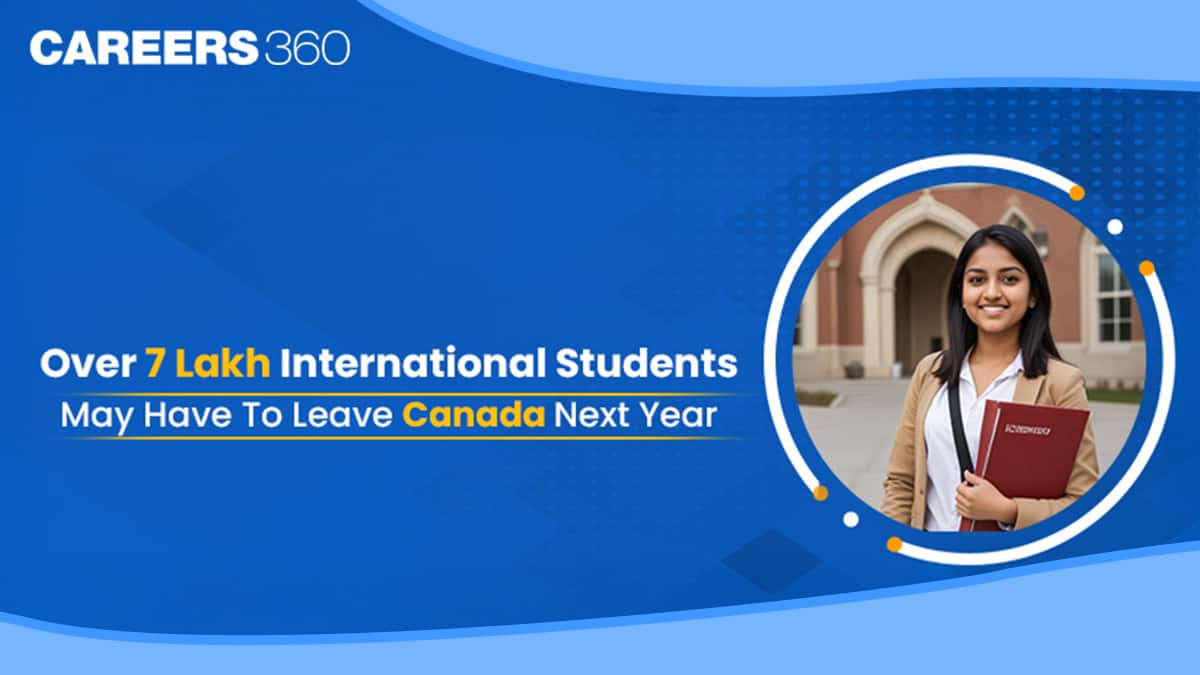Canada Student Visa - More than 7 Lakh International Students May Leave Canada Ending 2025
Canadian immigration Minister Mark Miller has informed the Commons immigration committee that approximately 50 lakh temporary permits are expiring by the end of 2025. It has been anticipated that most of these temporary permit holders will leave the country willingly.

Over 7,60,000 of these expiring Canadian temporary permits are international students who are facing increased challenges due to recent changes in the Student Direct Stream (SDS) program as a part of anti-immigration policies. The SDS program was offered by the Canada government under which the study permits are processed within 20 days of the application. This scheme has now ended post November 08, 2024.
The majority of international students protested for a permit extension near Brampton, but none catered. Marc Miller commented that international students entering Canada on study permits must not assume that they will be given permanent residency on the completion of the course of study. Simply, it means that students on completion of their studies in Canada must go back to their home country. Over 7 lakh international students may have to leave Canada next year.
Tom Kmiec, Conservative MP raised his concerns. On this, Miller again reassured that both monitoring mechanisms and CBSA (Canada Border Services Agency) will handle all breaches and concerns.
He continued, that some of the eligible temporary permit holders will receive renewals or postgraduate work permits (validity 9 months to 3 years) to have work experience for PR applications.
As per the Canadian immigration department of May 2023, the country had over 10 lakh international students, with 3,96,235 holding Post Graduation Work Permits by 2023 end. This is almost 3 times the number from 2018. Getting Canada PR will be highly competitive now onwards due to thousands of expiring visas by 2025 and rigid immigration policies.
With growing concerns over the rising number of immigrants, Canada has already announced the reduction of international study permits by 35% in 2024 and plans to reduce it further by another 10% in 2025 concerning increasing asylum claims from students citing housing market pressures. He plans to speed up these asylum claims processing to address any fraud.
The changes in the Canadian immigration policies have become a topic of political debate where Pierre Poilievre, the Conservative leader has criticised Prime Minister Justin Trudeau's policies. He highlighted in response to the information anticipating that over 7 lakh international students may leave Canada next year. He said that these policies are yet to address the main housing shortages; rather these have created a time of uncertainty for temporary visa holders.
Questions related to
On Question asked by student community
Hello,
After completing BPT in India, you must get your qualification approved by the Canadian Alliance of Physiotherapy Regulators (CAPR) .
First, apply for credential assessment , then pass the written and clinical exams . You also need an English test score (IELTS or CELPIP) .
After clearing these, apply
your career plan is valid as it provide knowledge which is relevant to become ips officer but you need to prepare for other subjects too because UPSC's ips broad syllabus includes Indian governance and current affairs too.
I advice to choose b.a in psychology in india as this avoids the
An undergraduate degree abroad is a good investment if you pursue it in canada because it provides quality education at affordable costs, along with a clearer path to post-graduation work and permanent residency,making it a reliable option to settle abroad.
Coming to U.S. it offers top-tier universities and higher salaries,
After completing a BSc in Biochemistry, you can pursue various courses in Canada such as MSc in Biochemistry, Biotechnology, Molecular Biology, Pharmacology, or Clinical Research. These programs offer advanced knowledge and open opportunities in research, healthcare, and industry.
Hello,
Yes, you can pursue MD in Radiology in Canada after completing a B.Sc. in Radiology, but you need to complete a recognized medical degree (like MBBS) first. After that, you must pass the Medical Council of Canada Qualifying Examination (MCCQE) and complete a residency in radiology. Alternatively, you can
Applications for Admissions are open.
Want to study in Ireland? Explore Universities & Courses
Study in Canada
ApplyExplore Universities, Courses & Subjects | Work while study
Study in UK
ApplyApply for upcoming intake & plan your journey
Study in USA
ApplyUniversities inviting applications | Get expert guidance
Study in Australia
ApplyShortlist best ranked universities & get expert guidance